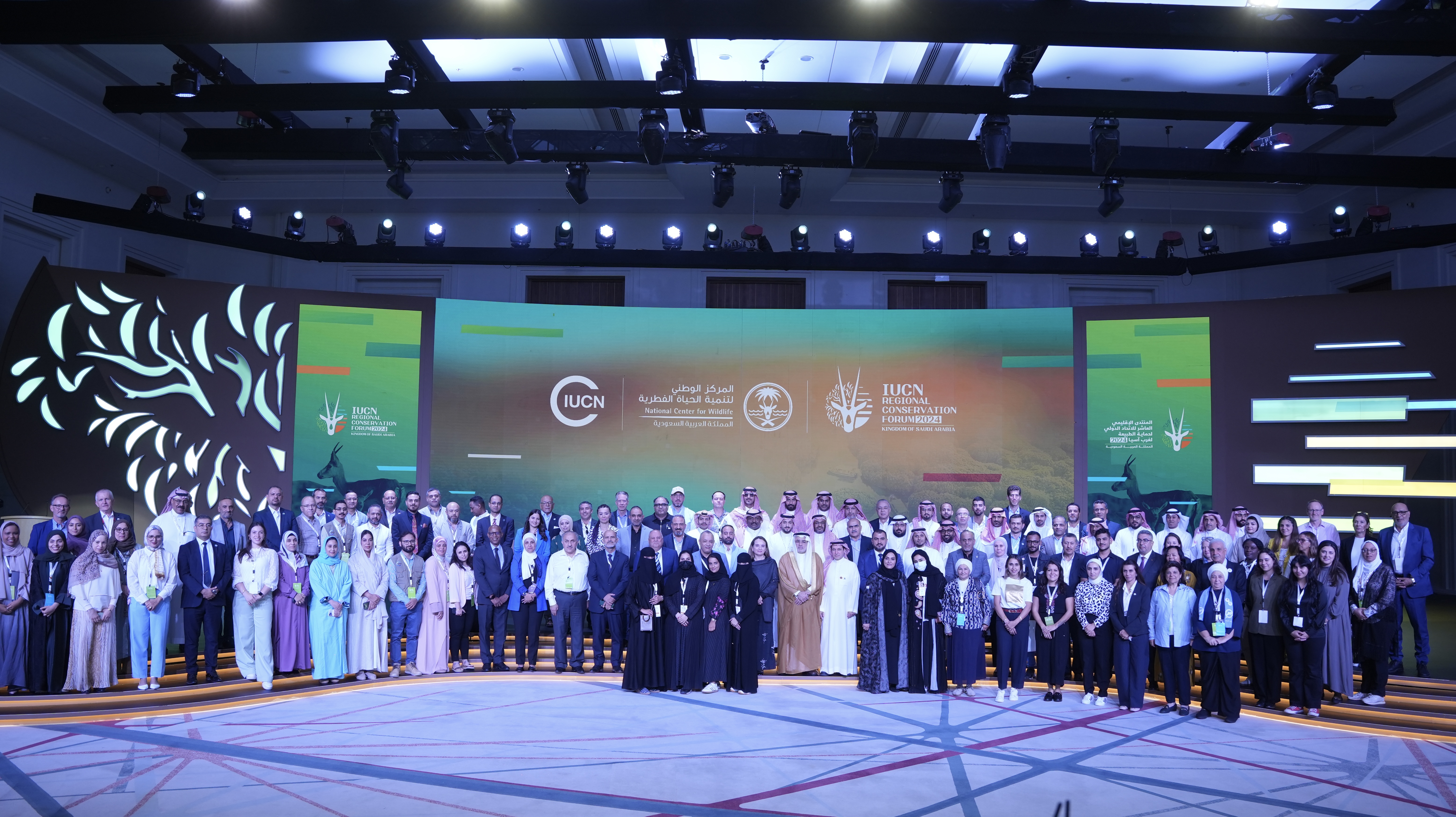
[Riyadh, Saudi Arabia, September 11, 2024] – The 10th IUCN Regional Conservation Forum for West Asia, organized by the National Center for Wildlife (NCW), concluded today in Riyadh after three days of dynamic discussions and workshops. The forum was held under the patronage of His Excellency Abdulrahman AlFadley, Minister of Environment, Water, and Agriculture, Chairman of the Board of the National Center for Wildlife, alongside Her Excellency Dr. Yasmin Fouad, Egyptian Minister of Environment, and H.E. Razan Al Mubarak, President of IUCN, along with over 200 experts and specialists representing IUCN member organizations and various local and international stakeholders.
During the forum, the Kingdom of Saudi Arabia launched its Protected Areas System Plan, which serves as a roadmap for establishing and managing protected areas. This initiative aims to achieve the 30x30 target, set in 2021, to protect 30% of the Kingdom’s terrestrial and marine areas by 2030, a key component of the Saudi Green Initiative.
The forum featured a series of sessions and workshops that addressed pressing environmental issues, biodiversity restoration efforts, nature-based solutions, and the inclusion of protected areas in the IUCN Green List. Participants also discussed the application of modern innovations and technologies in conservation efforts.
Additionally, participants emphasized the interconnectedness of water, energy, food security, and ecosystems, and the importance of strengthening local community engagement in ecosystem restoration initiatives. The aim is to achieve ecological representation of 30% in terrestrial, inland water, coastal, and marine areas by 2030 while enhancing the ability to adapt to climate change and addressing land degradation and desertification, in accordance with sustainable development goals.
The forum also examined sustainable land management practices to ensure sustainable food production, efficient water management, and combat land degradation and desertification. It highlighted opportunities and solutions for marine environments to reduce marine ecosystem degradation and overfishing through innovative strategies and collaborative approaches for effective marine governance. Discussions also included the economic impacts of environmental degradation, mechanisms for carbon sequestration, and the expansion of renewable energy systems.
In his remarks, Dr. Mohammed Qurban, CEO of the National Center for Wildlife, stated, “This forum serves as an effective platform for knowledge exchange and a venue for communication among member countries, enhancing nature conservation and preserving biodiversity. It is an opportunity for consultation and coordination in preparation for the World Conservation Congress to be held next year.”
He further added, “We closely monitored the discussions at the forum regarding regional participation in the global congress, and the quality action plans and resolutions presented reflect the effectiveness of collective efforts and their vital role in environmental protection in the region. We look forward to tangible results that strengthen international efforts in environmental stewardship and biodiversity restoration.”
The IUCN Regional Conservation Forum is held every four years, hosted by one of the 13 member countries, serving as a significant platform for advancing conservation efforts